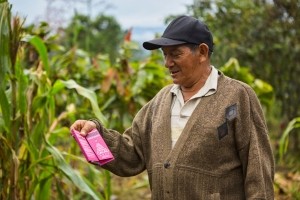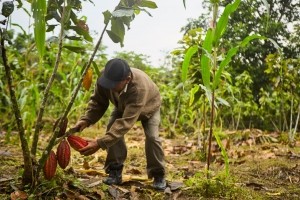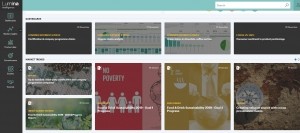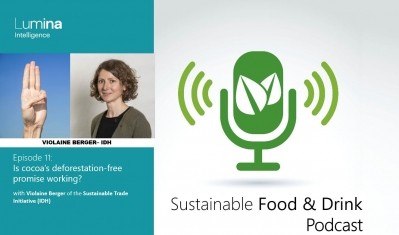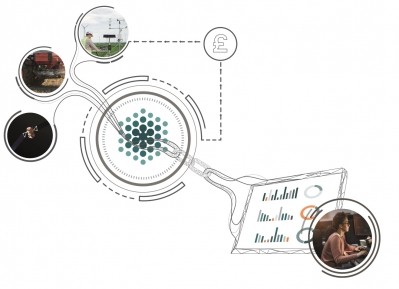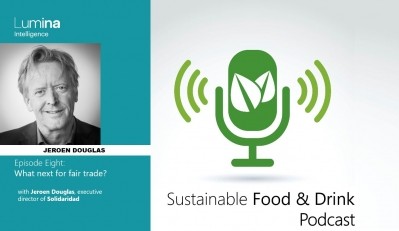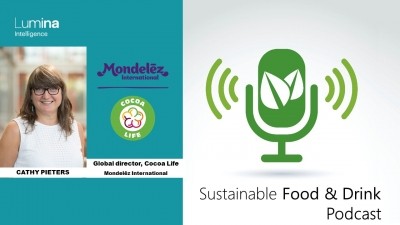Sustainable Food & Drink Podcast
Marketing for impact: Achieving a living income with blockchain tokens
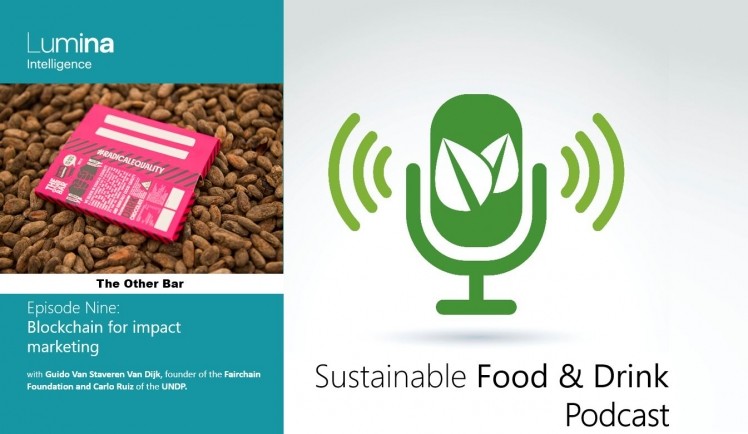
Food and drink players can convert marketing money spent on Instagram stars and TV ads to ‘impact dollars’, they say.
The organisations are running a social experiment with a poverty-eradicating chocolate bar that engages consumers in sustainability.
‘The Other Bar’ contains blockchain tokens that consumers can activate with a QR code.
These tokens represent real money that a consumer can decide to use to finance cocoa trees for farmers or to fund more Other Bar purchases.
More purchases support farmers as The Other Bar pays double the market price for cocoa, say the developers.
‘Something is wrong’
Speaking to Lumina Intelligence’s Sustainable Food & Drink Podcast, Guido Van Staveren Van Dijk, founder of the Fairchain Foundation, said: “We want to turn marketing dollars into impact dollars.”
“The real experiment is how we can turn quantifiable and verifiable proof of impact into customer loyalty.”
He highlighted a mismatch between the amount spent on tackling poverty and money put towards product marketing.
“We spend around $800bn on marketing in the global north and we only need $170bn to end global poverty. Something is wrong.
“Apparently, it’s more interesting to pay $1m for an Instagram post from Kim Kardashian or another famous face,” he said.
Beyond the fake: ‘Old ways are done with’
But Van Dijk said consumer attitudes are changing.
“We see a group of conscious consumers who are beyond the fake. The old ways are done with. People are tired to listen to fake stories”.
The Fairchain chief said the social experiment hopes to prove consumers will be loyal to a brand promoting true impact. Fairchain and the UNDP want to convince more companies to convert marketing money into blockchain tokens that are embedded into their products.
Other Bar launch
The Other Bar launched in the UK in December 2019 with 20,000 bars.
Blockchain tokens for each bar - representing $0.25 cents - can be activated by consumers for a discount on their next Other Bar purchase or on cocoa tree planting materials for farmers.
The brand pays double the world market price for cocoa from Ecuador and the chocolate is produced in Ecuador by local firm Hoja Verde.
Value at origin
The aim is to keep value at cocoa origin.
Carlo Ruiz of the United Nations Development Programme (UNDP) told us: “We realised farmers were not getting much of the added value. All buyers paid prices fixed by the market but in most cases those prices didn’t meet the needs of the farmers.”
But he said the the Other Bar initiative could bring more value to origin and provide a impact-driven marketing story: “We want to go from storytelling to story-doing to story-proving,” he said.
Ruiz added a few large companies has already approach the UNDP asking how the blockchain tokens could be used in other cocoa-producing countries.
Reaching a living income
Van Dijk said agriculture-based nations remain reliant on development aid because little value is added at origin.
He claimed about 3-6% of value remains in country of origin.
Even paying double the market price for cocoa only provides farmers 60-70% of a living income, he said: “If all the marketing budget is channelled to the farmers, we are able to get to a living income.”
“With this additional marketing budget, we are able to invest in plants that will earn them a higher income in three to five years that gives us a credible route to a living income.”
The Other Bar is positioned as a premium product but is intended for mass-market at a price of £2.99 for two 50g bars
Fairchain and the UNDP will analyse sales data after at least a year before encouraging companies to invest in other SDG projects with blockchain tokens.
Lumina Intelligence Sustainability
Lumina Intelligence Sustainability provides insights on the sustainable sourcing of cocoa, tea and coffee – three commodities facing similar social and environmental concerns.
The subscription service supports companies, suppliers, NGOs, governments and academics looking to strengthen their programmes, target research efforts and gauge demand for ethical products among online consumers.
